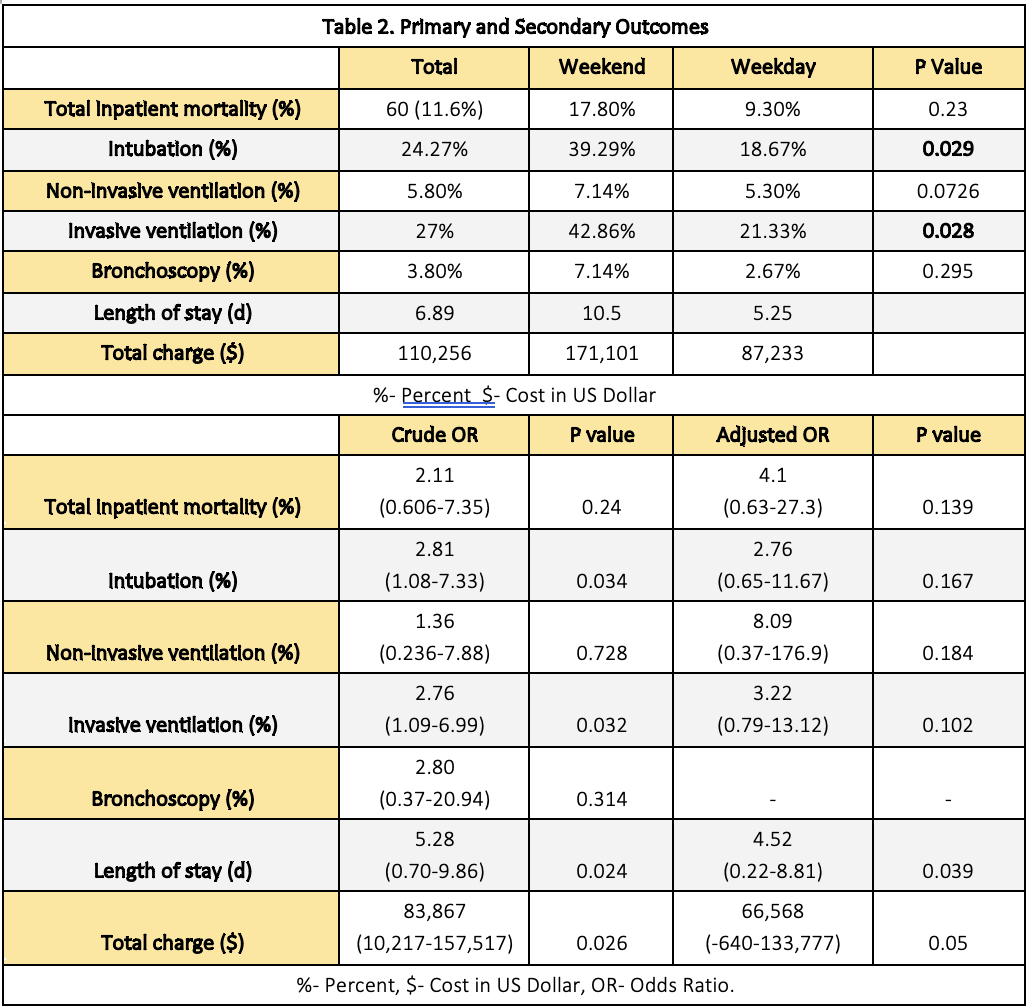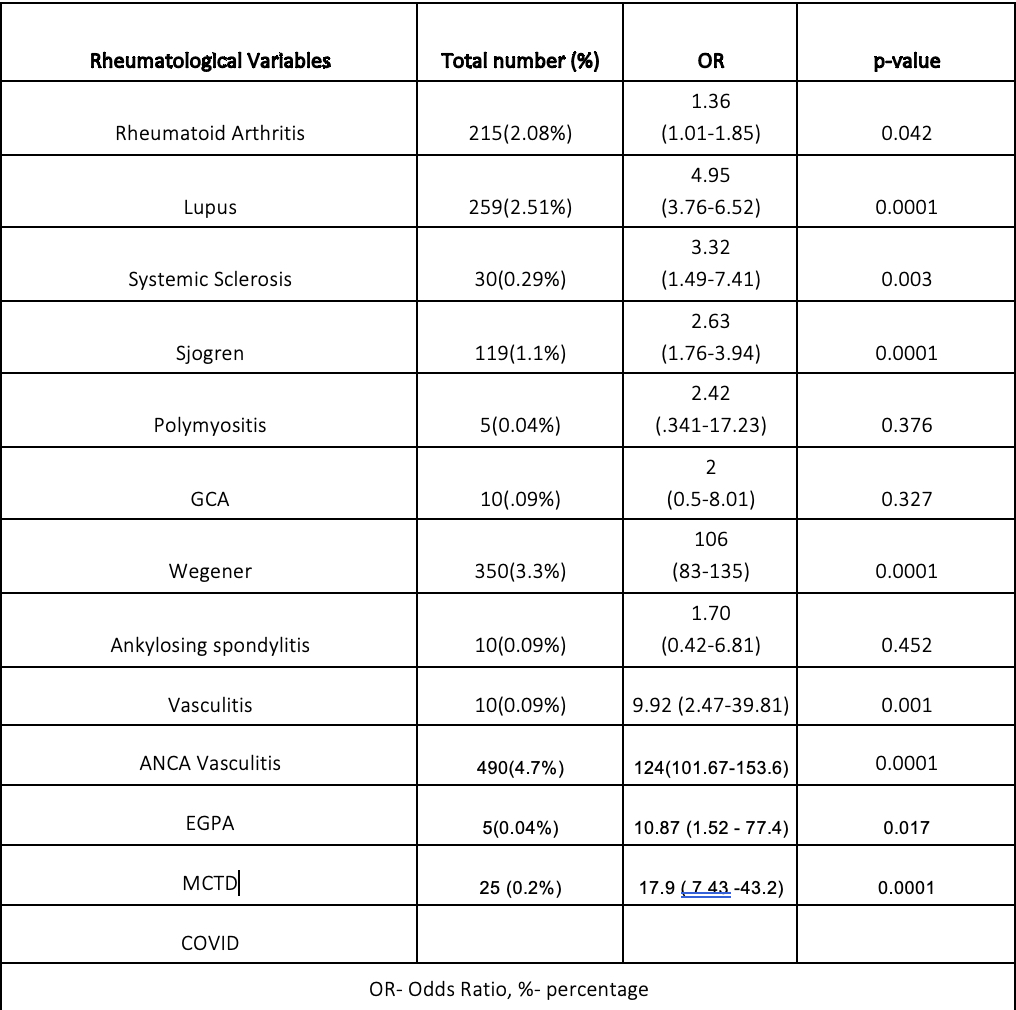Session Information
Session Type: Poster Session C
Session Time: 9:00AM-11:00AM
Background/Purpose: Diffuse alveolar hemorrhage (DAH) is a life-threatening pulmonary complication commonly associated with autoimmune disorders. Limited treatment options are available for DAH, and time to initiating treatment is critical. The day of admission may be an important predictor of patient outcomes. The “weekend effect”, which results from low staff availability over weekends, has been reported to have a number of negative outcomes. (1) However, there is limited evidence on the weekend effect on DAH, and in particular DAH association with rheumatologic disease. This study assesses the impact of the “weekend effect” inpatient mortality and outcomes in patients with DAH) and rheumatologic conditions.
Methods: This study utilized the National Inpatient Sample (NIS) database for 2020, which contains data on over seven million unweighted hospitalizations, to identify patients with DAH and rheumatological conditions. The patients were classified based on admission on a weekday or a weekend, and confounding variables were accounted for using multivariable logistic regression models. The primary outcome was inpatient mortality, and secondary outcomes included intubation, non-invasive ventilation, bronchoscopy, invasive ventilation, length of hospital stay, and total hospitalization charges.
Results: The study included 515 patients with primary diagnosis of DAH. Patients with lupus, systemic sclerosis, sjogren’s syndrome, Granulomatosis with polyangitis, vasculitis had a significance association with DAH p< 0.0001. Overall, DAH had 17.8% mortality on weekends vs 9.30% on weekdays with an OR 4.1(0.63-27.3), p=0.139, and greater likelihood of intubation OR 2.81(1.08-7.33) p= 0.034. Patients admitted on weekends had higher length of stay (LOS) 5.28 vs 4.52 days, p = 0.024 and higher total cost of stay; $171,101 vs $83,867 vs., p=0.026. Use on non-invasive ventilation, invasive ventilation, and bronchoscopy had similar odds in both groups. Those admitted on the weekends were more often in the lowest income quartile, 42.86% vs 23.29%.
Conclusion: This study highlights the association between several rheumatological conditions and DAH. As well it illustrates the weekend effect on inpatient mortality from DAH, and other outcomes. It shows a rather large increase in mortality from DAH in patients admitted on the weekends, as well as higher cost and length of stay. Interestingly, those in the lowest income bracket were most likely to be admitted on a weekend. These findings can help inform clinical decision-making and resource allocation to improve the care of DAH patients, especially in those with rheumatologic disease.
(1)Bell CM, Redelmeier DA. Mortality among patients admitted to hospitals on weekends as compared with weekdays. N Engl J Med. 2001 Aug 30;345(9):663-8. doi: 10.1056/NEJMsa003376. PMID: 11547721.
To cite this abstract in AMA style:
Piplani S, Gulati S, Jelic V, Ahmed A, Yoon S, Brown D, Radulovic M, Johnson B. The “Weekend Effect” and Rheumatological Association in Patients with Diffuse Alveolar Haemorrhage [abstract]. Arthritis Rheumatol. 2023; 75 (suppl 9). https://acrabstracts.org/abstract/the-weekend-effect-and-rheumatological-association-in-patients-with-diffuse-alveolar-haemorrhage/. Accessed .« Back to ACR Convergence 2023
ACR Meeting Abstracts - https://acrabstracts.org/abstract/the-weekend-effect-and-rheumatological-association-in-patients-with-diffuse-alveolar-haemorrhage/


